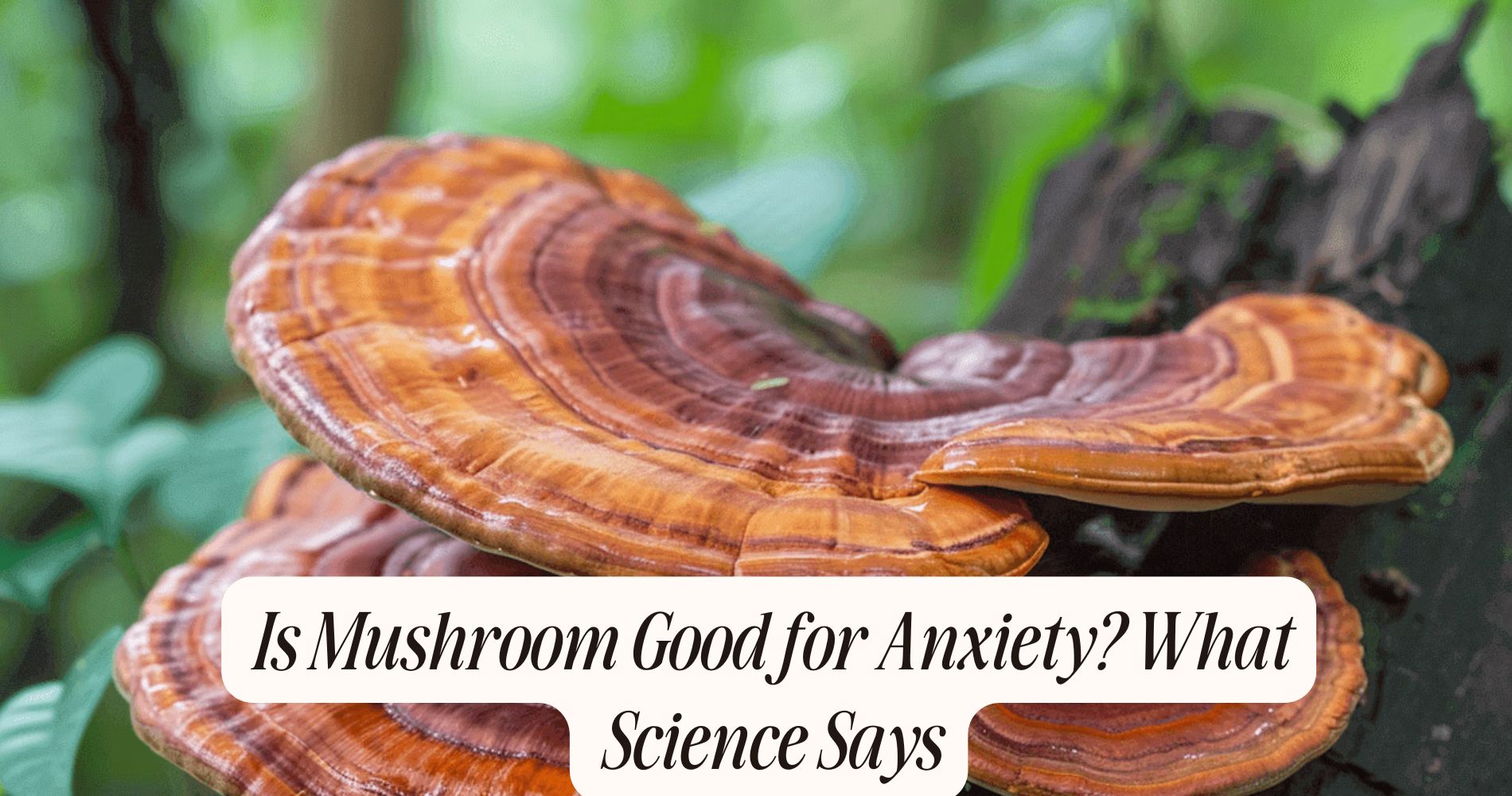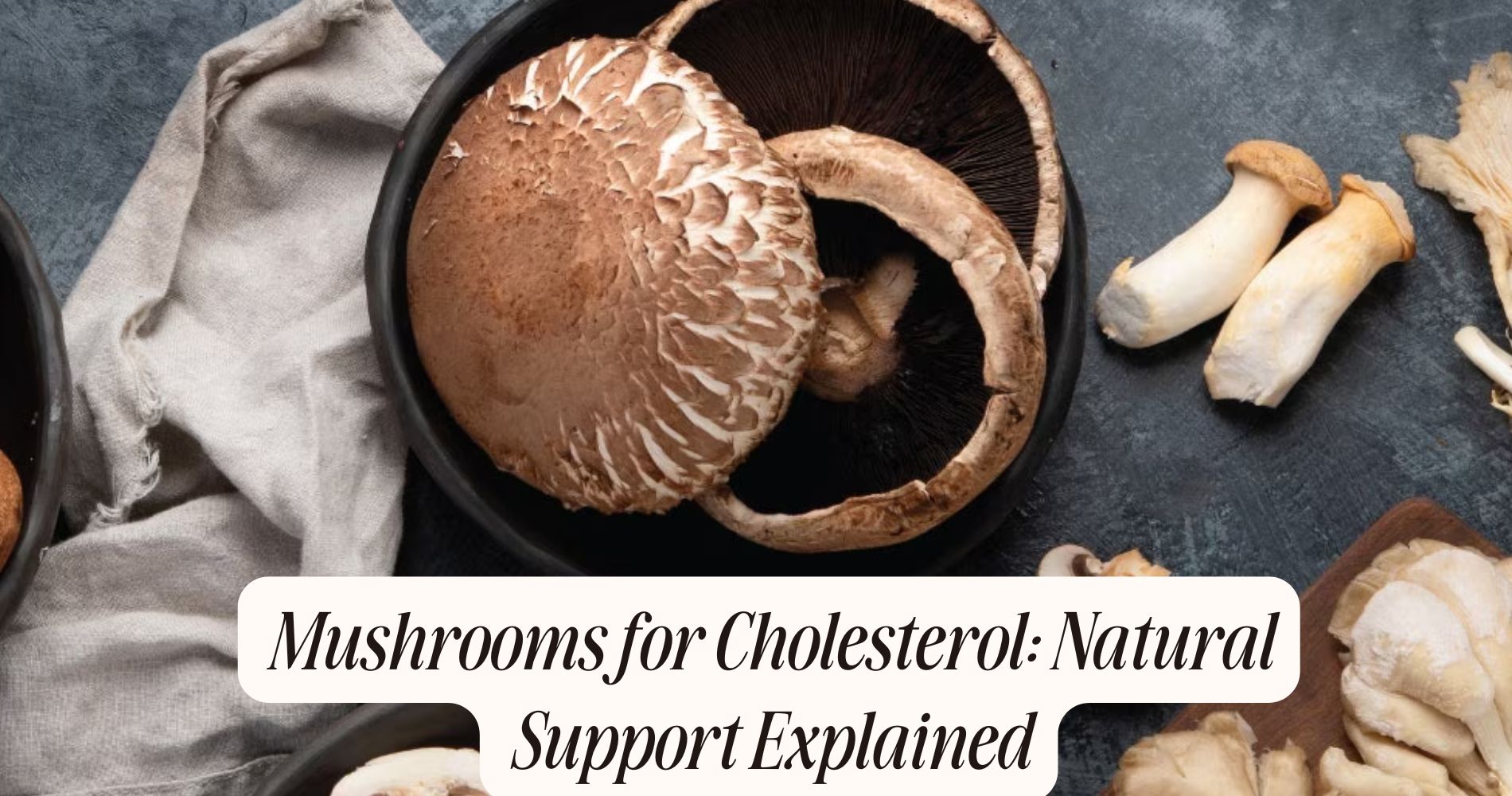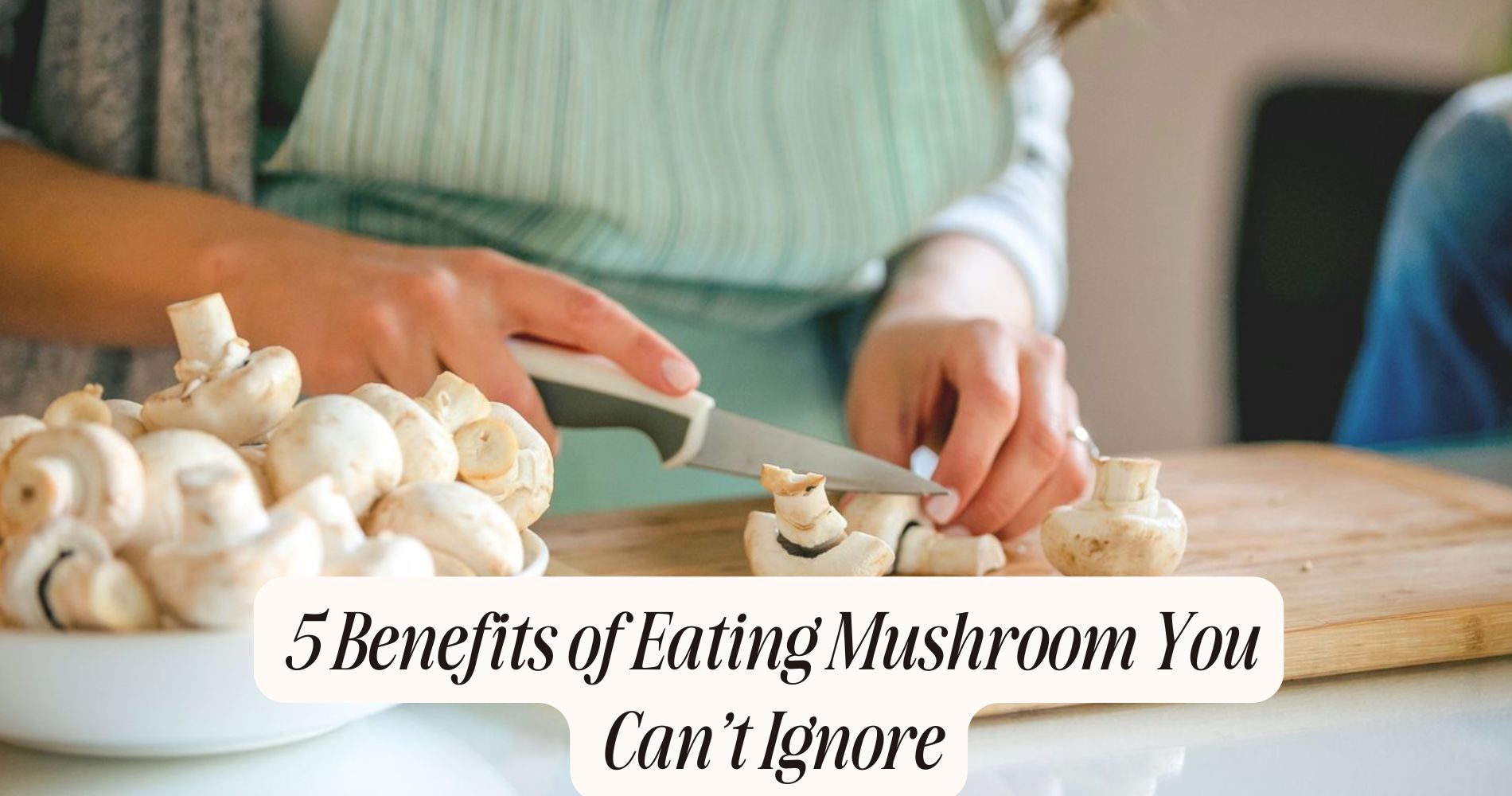
Is Mushroom Good for Anxiety? What Science Says
Is mushroom good for anxiety? Mushrooms can be a great addition to your toolkit for managing anxiety. Varieties like lion's mane enhance cognitive function and reduce anxiety symptoms, while reishi promotes relaxation and combats stress. Psilocybin therapy shows promising results, notably reducing anxiety in controlled settings. These mushrooms influence neurotransmitters like serotonin, which are essential for mood regulation. Plus, they support gut health, a key factor in mental well-being. However, you should consult with a healthcare professional before starting any new treatment. Want to uncover more about specific mushrooms and how they can help with anxiety?
Understanding Anxiety Disorders
Anxiety disorders are complex mental health conditions that affect millions of people worldwide. You might experience various anxiety symptoms, such as excessive worry, restlessness, and difficulty concentrating. Understanding these symptoms is crucial for effective anxiety management.
The journey toward emotional wellbeing often involves implementing stress reduction techniques and adopting coping strategies. To tackle anxiety, you can explore different therapeutic approaches. Cognitive-behavioral therapy (CBT) is one popular method that helps you identify negative thought patterns and replace them with healthier ones.
Additionally, integrating lifestyle changes, such as regular exercise and a balanced diet, can greatly impact your mental health. Don't underestimate the power of psychological support, whether from friends, family, or mental health professionals. They can provide you with the encouragement and tools you need to navigate anxiety.
Mindfulness techniques, like meditation and deep breathing exercises, can also enhance your ability to manage stress and cultivate a sense of calm.
Overview of Medicinal Mushrooms
When exploring ways to manage anxiety, many people turn to natural remedies, and medicinal mushrooms have gained attention for their potential therapeutic benefits. These unique fungi offer a variety of medicinal properties that can support both physical and mental health.
You might be surprised to learn about the different mushroom varieties, each with its own traditional uses and therapeutic applications. For instance, reishi mushrooms are often praised for their calming effects, while lion's mane is known for its potential to enhance cognitive function.

These mushrooms can be incorporated into your diet or taken as supplements, making them a versatile option in herbal medicine. Many people appreciate their holistic approaches, focusing on overall wellness rather than just symptom relief.
Moreover, medicinal mushrooms can provide immune support, helping your body to cope with stressors more effectively. By exploring these natural remedies, you can find ways to complement your anxiety management strategies.
As you research and consider incorporating these mushroom varieties into your routine, remember that they may serve as valuable allies in your journey toward better mental health.
Psilocybin and Anxiety Treatment
How can psilocybin, a naturally occurring psychedelic compound found in certain mushrooms, play a role in treating anxiety? Recent studies suggest that psilocybin therapy may offer significant anxiety reduction for those suffering from various anxiety disorders.
This therapy involves administering controlled doses of psilocybin in a supportive environment, allowing you to explore your thoughts and feelings in a new light.
Research indicates that psilocybin can help shift your perspective, enabling you to confront anxieties that may have previously felt overwhelming. During therapy sessions, participants often report profound experiences that lead to increased emotional openness and a sense of connection to themselves and others.
This newfound clarity can help you develop healthier coping mechanisms and reduce anxiety symptoms over time.
Additionally, psilocybin appears to promote neuroplasticity, encouraging your brain to form new connections and pathways. This could mean that the benefits of psilocybin therapy extend beyond immediate anxiety reduction, potentially providing long-lasting improvements in your mental health.
While more research is needed, the current findings shed light on psilocybin's potential as a valuable tool in anxiety treatment, offering hope for those seeking alternative options.
Other Mushroom Species Explored
Several other mushroom species have garnered attention for their potential mental health benefits, particularly in relation to anxiety and stress relief.
Lion's Mane, known for its cognitive-enhancing properties, may help you manage anxiety by promoting nerve growth and improving overall brain function.
Reishi benefits include its adaptogenic qualities, which can help your body cope with stress more effectively.
Shiitake effects have been linked to immune support, which can indirectly influence your mental well-being by reducing stress-related illnesses.

Chaga properties are recognized for their antioxidant content, potentially supporting mood stabilization.
Cordyceps uses extend to enhancing energy levels, which can be beneficial during periods of anxiety.
Turkey Tail is celebrated for its immune-boosting capabilities, while Maitake benefits might involve regulating stress hormone levels.
Morel insights suggest these mushrooms could support your overall health, enhancing resilience against stress.
Porcini research hints at possible anti-inflammatory effects, which could play a role in emotional well-being.
Finally, Enoki effects are thought to promote cardiovascular health, which can help alleviate anxiety symptoms.
Exploring these various mushrooms may provide you with additional tools to manage anxiety effectively.
Mechanisms of Action
The mechanisms of action behind mushrooms for anxiety are both fascinating and complex, involving a range of bioactive compounds that interact with the body and brain. One key aspect is neurotransmitter modulation. Compounds in certain mushrooms can influence the levels of neurotransmitters like serotonin and dopamine, which play essential roles in mood regulation. By enhancing the balance of these chemicals, mushrooms might help alleviate anxiety symptoms.
Additionally, mushrooms can impact the immune response. The body's stress response can lead to inflammation, which is often linked to anxiety disorders. Some mushrooms, particularly those with adaptogenic properties, can help modulate this immune response, reducing inflammation and promoting a sense of calm.
This dual action—affecting neurotransmitters and the immune system—may contribute to the overall anxiolytic effects.
Moreover, the presence of polysaccharides and other phytochemicals in mushrooms supports gut health, which is increasingly recognized for its connection to mental well-being. When the gut microbiome is healthy, it can further assist in stabilizing mood and reducing anxiety.
Current Research Findings
Recent studies have begun to shed light on the effectiveness of mushrooms in anxiety management. Researchers have explored various mushroom varieties, such as lion's mane and reishi, for their potential to provide anxiety relief. These mushrooms contain compounds believed to promote neuronal health and enhance cognitive function, which can be beneficial for those dealing with anxiety.
In a recent clinical trial, participants who consumed lion's mane mushroom reported reduced anxiety levels compared to those who took a placebo. This suggests that certain mushroom varieties may have a direct impact on anxiety symptoms.

Additionally, reishi mushrooms are known for their adaptogenic properties, helping the body adapt to stress and potentially alleviating anxiety.
While the research is still in its early stages, these findings are promising and indicate that incorporating specific mushrooms into your diet could be a viable strategy for anxiety management.
However, it's crucial to consult with a healthcare professional before making any significant changes to your routine. The exploration of mushrooms for anxiety relief is an exciting area of research and may offer new avenues for those seeking alternative treatments.
Potential Benefits of Mushrooms
Mushrooms offer a range of potential benefits that can support your mental health.
Not only are they packed with essential nutrients, but some types also possess adaptogenic properties that help your body manage stress.
Let's explore how specific mushroom varieties can be particularly beneficial for anxiety.
Nutritional Value Overview
Packed with essential nutrients, edible fungi offer a range of potential benefits that can support mental well-being. Mushrooms are low in calories yet high in valuable vitamins and minerals, making them excellent dietary sources for those looking to enhance their nutrition. They contain B vitamins like riboflavin, niacin, and pantothenic acid, which play significant roles in energy production and brain function.
Additionally, mushrooms are rich in antioxidants, helping to combat oxidative stress that can affect your mood and overall mental health. Vitamin D, found in some varieties, is known to influence serotonin levels, which can directly impact anxiety and depression.
Moreover, mushrooms are a great source of minerals such as selenium, copper, and potassium. These nutritional benefits contribute to maintaining a balanced diet, which is essential for mental clarity and emotional stability.
Incorporating mushrooms into your meals can be an easy way to boost your nutrient intake and potentially improve your mental health. So, whether you're adding them to a stir-fry or enjoying them in a soup, consider the positive impact mushrooms can have on your overall well-being.
Adaptogenic Properties Explained
Many people may not realize that certain mushrooms possess adaptogenic properties, which can greatly benefit mental health.
Adaptogens explained refer to natural substances that help your body adapt to stress and promote balance. Different mushroom varieties, like reishi and lion's mane, are renowned for their ability to support your body's stress response.
When consumed, these mushrooms may help regulate cortisol levels, the hormone responsible for stress. By balancing your body's response to stress, adaptogenic mushrooms can potentially alleviate anxiety and improve overall mental well-being.

You'll find that incorporating these mushrooms into your diet may enhance your resilience, allowing you to better cope with life's challenges.
In addition to their stress-reducing effects, adaptogenic mushrooms may also promote cognitive function. This might help you stay focused and clear-headed even during stressful times.
Specific Mushroom Types
When it comes to finding relief from anxiety, specific types of mushrooms can offer remarkable benefits. Lion's Mane, for instance, is known for its ability to enhance cognitive function and reduce anxiety symptoms, making it a popular choice.
Reishi benefits include promoting relaxation and helping you combat stress, while Cordyceps effects may boost your energy levels, which can indirectly ease anxiety.
Shiitake properties are rich in nutrients that support overall well-being, contributing to better mental health. Chaga uses extend to its antioxidant properties, which can help combat oxidative stress linked to anxiety.
Turkey Tail is another powerful mushroom, known for supporting gut health, which is essential for mental clarity and emotional stability.
Maitake research has shown its potential to regulate stress hormones, aiding in anxiety management.
Oyster mushrooms provide B vitamins that improve mood, while Enoki benefits include their ability to enhance immunity, helping you feel more resilient against stress.
Finally, Porcini effects are tied to their nutritional profile that supports brain health. Incorporating these mushrooms into your diet could be a natural way to help manage anxiety effectively.
Risks and Side Effects
When considering mushrooms for anxiety, it's essential to be aware of potential allergic reactions that could affect you.
Additionally, these mushrooms might interact with other medications you're taking, leading to unforeseen complications.
Always consult with a healthcare professional before incorporating them into your routine.
Potential Allergic Reactions
Although mushrooms can offer potential benefits for managing anxiety, it's important to be aware of the risks associated with allergic reactions. Some individuals may experience mushroom allergies, which can lead to a range of symptoms. If you decide to include mushrooms in your diet or supplement regimen, you'll want to be vigilant about how your body reacts.
Allergic reactions to mushrooms can manifest in various ways, including skin rashes, itching, or gastrointestinal issues like nausea and vomiting. In more severe cases, you might face difficulty breathing or swelling in the throat, which warrants immediate medical attention.
If you've had previous allergic reactions to fungi or mold, you should be especially cautious when trying mushrooms, as your risk may be higher.
To minimize the risk of allergic reactions, start with small amounts and observe how your body responds. If you notice any adverse effects, it's best to discontinue use and consult a healthcare professional.
Drug Interactions Risks
Managing drug interactions is essential when evaluating mushrooms for anxiety management. While mushrooms, particularly certain types like psilocybin, show promise in alleviating anxiety, they can interact with medications you might be taking. It's vital to be aware of these interactions for your medication safety.
For instance, if you're on antidepressants, combining them with psychedelic mushrooms could lead to serotonin syndrome, a potentially life-threatening condition.
Similarly, if you take medications that affect liver enzymes, mushrooms might alter how those drugs are metabolized, leading to reduced effectiveness or increased side effects.

It's also important to examine over-the-counter medications and herbal supplements, as they can interact with mushrooms too.
Always consult your healthcare provider before trying mushrooms, especially if you're on multiple medications. They can help you evaluate potential drug interactions and adjust your treatment plan accordingly.
How to Incorporate Mushrooms
Incorporating mushrooms into your daily routine can be a simple yet effective way to harness their potential benefits for anxiety. You can start by exploring their culinary uses. Fresh mushrooms, like shiitake or oyster, can be added to stir-fries, soups, or salads, while dried varieties make excellent additions to sauces and stews.
If you prefer supplement forms, look for mushroom powders or capsules that fit your lifestyle. When it comes to mushroom teas, they're a soothing option—just steep dried mushrooms in hot water for a calming drink. Be sure to follow dosage guidelines provided on the packaging to guarantee you're getting the right amount.
For creative recipe ideas, try pairing mushrooms with other nutrient-rich ingredients, like spinach or quinoa. Cooking methods like sautéing or roasting can enhance their flavors while maintaining their health benefits.
Future Directions in Research
As you explore the various ways to include mushrooms in your routine, it's important to look ahead at how research is evolving in this area. Future research on mushrooms as a potential treatment for anxiety will likely focus on their therapeutic applications. Clinical trials are needed to establish effective dosage guidelines, guaranteeing you get the right amount for potential benefits.
Understanding the long-term effects of mushroom consumption is vital, especially as studies on population samples can reveal varying impacts across different demographics. Researchers will also investigate the neurobiological mechanisms behind how mushrooms influence anxiety, which could lead to more tailored treatments in the future.
Additionally, public perceptions of mushrooms as anxiety relief will play a significant role in their acceptance. Regulatory challenges must be addressed to guarantee safety and efficacy before these natural remedies can be widely recommended.
Cross species comparisons may provide valuable insights, helping to understand the broader implications of mushroom use in mental health. By staying informed about these future directions in research, you can make educated decisions about incorporating mushrooms into your life.
Calm Your Mind Naturally with SUPER MUSHROOM GUMMIES
If you’re wondering, "Is mushroom good for anxiety?" and looking for an easy way to experience their calming benefits, try Well Gummies' SUPER MUSHROOM GUMMIES. Packed with 10 functional mushroom types, these vegan gummies promote mental clarity, reduce stress, and deliver sustained energy. With a delicious fresh wild berry flavor, they’re as enjoyable as candy and simple to incorporate into your daily routine. Say goodbye to jitters and crashes, and embrace natural, balanced calm with SUPER MUSHROOM GUMMIES!
Frequently Asked Questions
Can Mushrooms Replace Traditional Anxiety Medications?
You might consider mushroom therapy as a natural alternative to traditional anxiety medications, but it's crucial to consult a healthcare professional. While promising, it shouldn't replace prescribed treatments without proper guidance and research.
Are There Specific Mushrooms Recommended for Anxiety Relief?
When exploring mushroom varieties for anxiety reduction, you might consider Lion's Mane and Reishi. Both have shown potential benefits, helping calm your mind and improve overall well-being. Always consult a healthcare professional before trying new remedies.
How Long Does It Take to Feel Effects From Mushrooms?
When using different mushroom types, you'll typically feel effects within 30 minutes to 2 hours, depending on dosage guidelines. Always start low and adjust based on your body's response for the best experience.
Are There Age Restrictions for Using Mushrooms for Anxiety?
When considering age restrictions for mushrooms, you'll find legality varies by location. Generally, many places set age considerations at 18 or 21, but always check local laws to verify compliance and safety.
Can Mushrooms Interact With Other Medications for Anxiety?
Mushrooms can interact with other medications for anxiety. Different mushroom types may have varying effects. Always consult a healthcare professional about dosage guidelines to guarantee safety and avoid potential negative interactions with your current medications.
Conclusion
Incorporating mushrooms into your wellness routine might offer potential benefits for anxiety, particularly with compounds like psilocybin showing promise in research. While the science is evolving, it's important to approach this with caution and awareness of possible risks. Always consult a healthcare professional before making changes to your treatment plan. As research continues, you might find new insights that could help you manage anxiety more effectively. Stay informed and open to exploring the options available to you.




